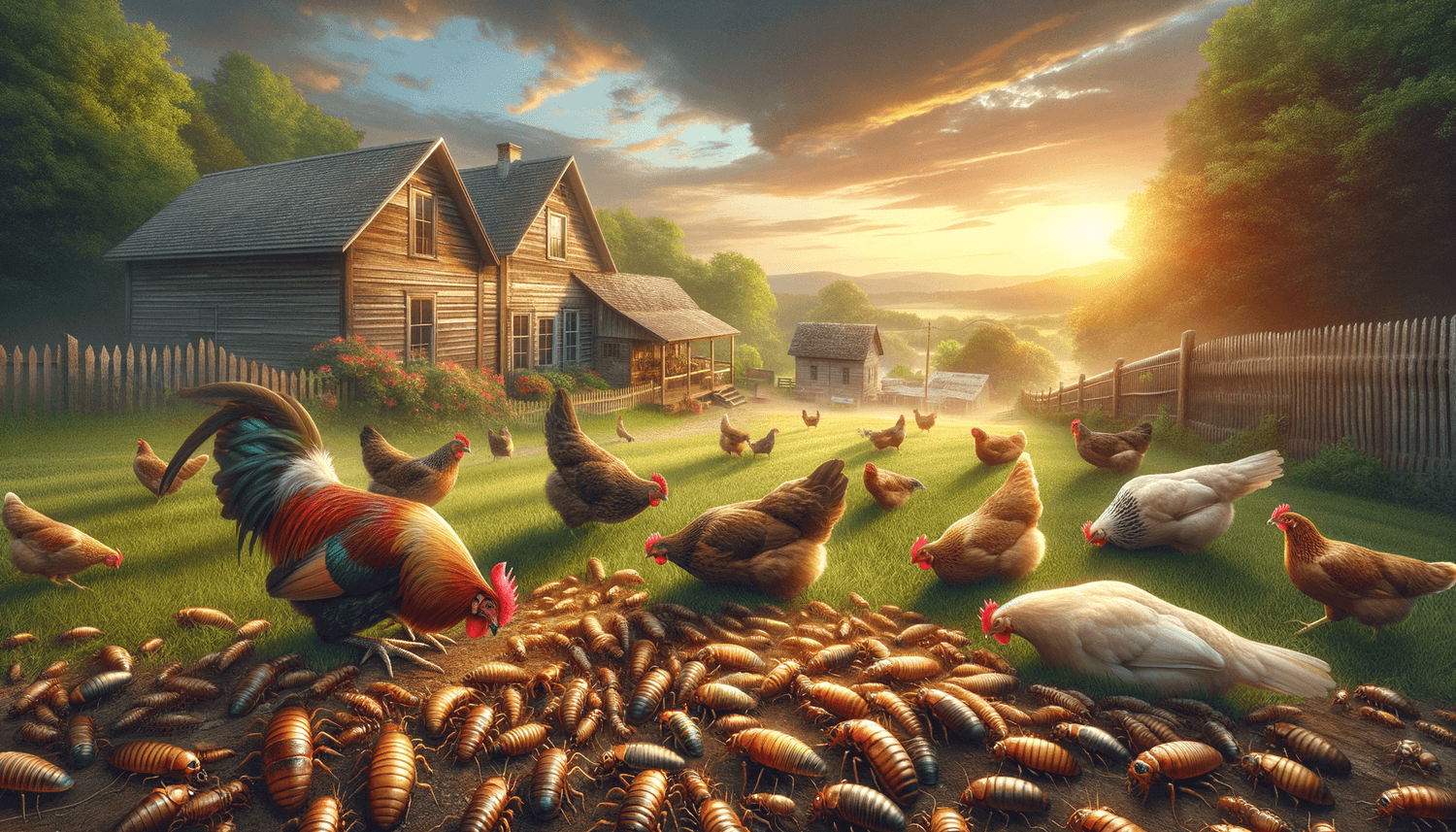Yes, chickens can eat cicadas. These insects provide a high-protein snack for chickens, which is beneficial for their diet, especially during the cicadas’ periodic emergences when they are plentiful. However, moderation is important to avoid overconsumption as part of a balanced diet.
Quick Summary
- Chickens can eat cicadas.
- Cicadas are a high-protein treat that can benefit chickens in moderation.
- Too many cicadas can cause digestive upset, so they should not replace a balanced diet.
- Feed cicadas to chickens as an occasional snack during their emergence periods.
Overview of Cicadas
Cicadas are flying insects known for their periodic emergences from the ground and distinctive chirping sounds. They boast a noteworthy nutrient profile, particularly in terms of protein, which is essential for chicken growth and egg production. Moreover, cicadas are a natural part of many wild birds’ diets.
Benefits and Risks of Cicadas for Chickens
The primary benefit of feeding chickens cicadas is the boost in dietary protein, supporting feather growth and general health. Nonetheless, there are risks if chickens eat cicadas in excessive quantities, such as potential digestion issues or nutrient imbalances. It’s also crucial to ensure no exposure to pesticides or chemicals on the cicadas fed to chickens.
Feeding Guidelines
Chickens can safely enjoy cicadas as a supplement to their regular feed. During a cicada emergence, allow the chickens to forage for cicadas naturally, or collect a small number to mix into their feed. Ensure they maintain a primary diet of balanced chicken feed.
Alternatives
If cicadas are not available or if there are concerns about feeding them to chickens, other high-protein snacks like mealworms or small bits of cooked meat can be healthier, controlled alternatives that provide similar nutritional benefits.
Expert Opinions
Poultry nutritionists advocate for varied diets inclusive of insects like cicadas for backyard chickens. Experts recommend moderation, ensuring these snacks do not exceed 10% of the chickens’ diet. Veterinarians also suggest monitoring flocks for any adverse reactions after consuming cicadas.
Frequently Asked Questions
Following a discussion about whether chickens can eat cicadas, several common questions might remain. These aim to further clarify feeding cicadas to chickens in a safe and healthy manner.
Are cicadas safe for chickens to eat?
Yes, cicadas are safe for chickens when eaten in moderation and free from pesticides or other contaminants. Their natural composition makes them a fitting choice for an occasional snack.
How many cicadas can I feed my chickens?
Chickens should only have cicadas as a small part of their diet. Offer cicadas sparingly, making sure they don’t consume more than 10% of their overall daily food intake with these insects.
Can feeding cicadas to chickens replace their regular feed?
No, cicadas should not replace regular chicken feed due to potential nutrient imbalance. Chickens require a complete and balanced feed for optimal health, with cicadas only supplementing this diet.

















